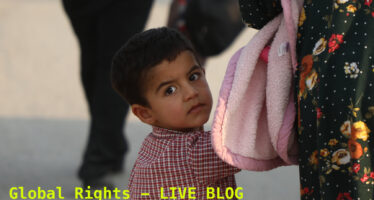TRT 6 report
![]()
Since the day it had been announced, at the end of 2008, the launch of TRT6, a only-kurdish channel broadcasted by the Turkish state television TRT, had caused all sort of passionate reactions. But strange enough, few of them had been positive ones.
The nationalists, obviously, could not but abhor the idea of a channel broadcasting in a language of which, until a few years ago, they used to deny even the existence. But the harshest critics had indeed sprouted within the Kurdish community itself. As there were only few months left for the important March 2009 local elections, the launch of TRT6 had been interpreted by many as a desparate attempt from Erdogan to win back some shares of votes within the Kurdish electorate. In fact, all the latest polls had been showing the increasing disillusion and detachment of Kurdish electorate from the ruling party AKP (successively confirmed by the actual election results).
At all levels, critics had come addressing the excessive rapidity in creating the channel, the superficialty of its programs, the lack of competence of its managers and producers. But after a few weeks, the critics had reached a new stage: Ozan Yusuf, a famous Kurdish artist and intellectual, after collaborating with the channel felt the need to publicly ask for pardon to all the Kurds of Turkey. What happened is that he felt ashamed for having given his contribute for a channel that, in his words. “explicitly asked me not to use the words Amed (the Kurdish name of the city of Diyarbakir) and Berfin (a flower), because they are too often used by political organizations. But Amed is the name we use for the city of Diyarbakir, how could I avoid using it?”.
Most of the Kurdish cultural and political organizations were very fast in making clear the contradiction of having a channel in Kurdish language in a country where Kurdish politicians and intellectuals are still being prosecuted for having used Kurdish language in their speeches or in the public administration documents.
Thus a campaign soon started, inviting both the Kurdish audience and the Kurdish intellectuals to boycot the channel by not watching it and not taking part in it.
Last week, after more than 6 months of broadcasting, a report has been published regarding the channel, its audience shares and the critics gathered through interviews with audience samples. The report, prepared by employees of the channel itself, expresses many harsh critics to the channel’s management, to its programs and to the anchormen and women themselves. At some point, it says: “the aims of a channel conceived to fulfill an important political mission, have been made void by the lack of competency of its administration, burocratic obstacles and internal disagreements”.
The report drwas also attention on the fact that, after the first three months of not so bad audience results, given by the evident curiosity of the Kurdish audience, this capital has soon been wasted, and thus since April “the channel seen with the satellite dish”, but whose nane does not appear in the report (that is RojTV, broadcasted from Denmark since 2004), has again imposed itself as the unrivaled channel within the Kurdish community.
Related Articles
ROJAVA RESISTANCE: DAY 12 – LIVE BLOG
![]()
20:26 Turkish army and allied mercenaries attack the village of Zormerxar in Kobanê. The village is targeted with heavy weapons.
LA FOSSA COMUNE DE LA MACARENA.
![]()
Si torna ancora a parlare della fossa comune più grande dell’America Latina scoperta l’anno scorso nella località del La Macarena
TALKING PEACE – ES
![]()
Normal 0 14 En cada conflicto la creación del imaginario del enemigo es un factor determinante para la consolidación del



